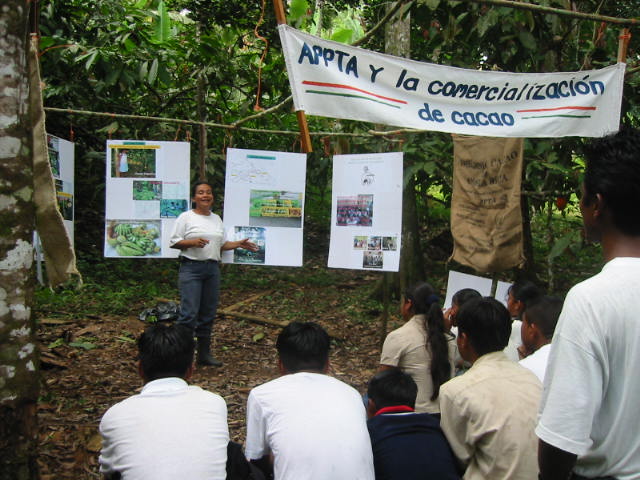Beyond Talamanca
Contributions
Livelihoods, Wellbeing and Sustainability
National and international contributions to sustainable livelihoods are realized through others that ANAI has been able to support. Some of these contributions include:
COCABO (Cooperativa Cacaotero Bocatoreño) is one of the world’s largest cacao farmers’ cooperatives, in Bocas del Toro Province, Panama, with 1,500 mostly indigenous families. Begun in 1952, it is an essential organization for sustainable livelihoods in this part of Panama. ANAI has collaborated with COCABO in a variety of ways over the years:
ANAI has played a leading role in the Costa Rica Small Grants Program for Sustainable Development (CR-SGP), whose contributions include:
Thousands of campesinos, indigenous people and students have visited ANAI and the organizations that have grown out of its work. This has inspired some of these visitors to put into practice sustainable activities learned through these peer exchanges.
COCABO (Cooperativa Cacaotero Bocatoreño) is one of the world’s largest cacao farmers’ cooperatives, in Bocas del Toro Province, Panama, with 1,500 mostly indigenous families. Begun in 1952, it is an essential organization for sustainable livelihoods in this part of Panama. ANAI has collaborated with COCABO in a variety of ways over the years:
- Facilitating a process that transformed Cocabo’s cacao growing, extension and marketing practices into being 100% certified organic and Fair Trade.
- Diversifying the farms of more than 900 families who planted thousands of fruit trees all across the landscape of Bocas del Toro Province.
- Guiding a strategic planning process during an organizational crisis.
- Carrying out 3 learning exchanges for young leaders from Cocabo’s communities.
- Facilitating a collaborative relationship between Cacabo and APPTA.
ANAI has played a leading role in the Costa Rica Small Grants Program for Sustainable Development (CR-SGP), whose contributions include:
- Supporting a diversity of organic agriculture growing, processing and marketing initiatives.
- Supporting the creation and consolidation of more than 30 indigenous and campesino ecotourism initiatives.
- Putting into practice a landscape-scale soil conservation initiative in Costa Rica’s two most degraded watersheds.
- Pioneering the creation of sustainable community fisheries areas all along the country’s Pacific coast.
Thousands of campesinos, indigenous people and students have visited ANAI and the organizations that have grown out of its work. This has inspired some of these visitors to put into practice sustainable activities learned through these peer exchanges.

